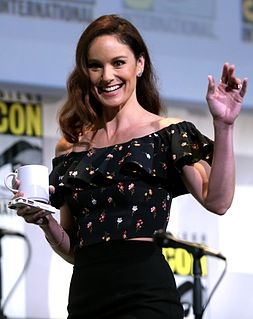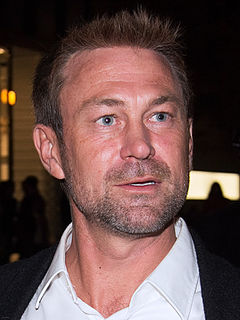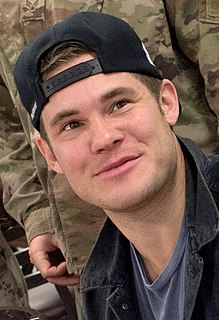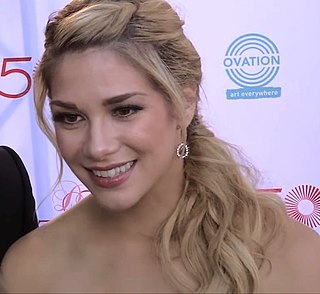A Quote by Greg Bryk
If you trust that the people making the show love the source material and the characters, and it's a different medium and there are different requirements for long-form storytelling that will hopefully carry over a number of seasons, then it's exciting.
Related Quotes
What serialized cable dramas have given us is the opportunity to not simply tell the same story with slightly different words and different costumes, every week. people are really mining the ability of storytellers to tell a long form story that goes from A to Z, and to trust that an audience will follow that. If they miss it, over the course of the week, they can watch it online or buy the DVD. There are so many different ways of interacting with it. Storytelling in television is getting more complex and more nuanced.
Television is what we call the long form of storytelling, where we tell stories over thirteen, twenty-two, or twenty-four hours. Miniseries is an eight-hour form of storytelling, and film is a two-hour form. Each and every one of them are important to me, because they're a different modality of storytelling.
I love musicals but it's very, very different. It's really just a different form than serious drama, and has very different rules and a completely different set of characters and requirements and ambitions. It maybe shouldn't be as separate as it is, but it's got a different history. In terms of serious drama, I think you'd have to say that you could break it down essentially into the narrative realist tradition and experimental theater.
The truth is that filmmaking is not really an actor's medium; it's really a director's medium, so all I can really control is the character that I'm playing. So I try to look for characters that are interesting and engaging and different than what I've done before and hopefully it becomes a good movie.
When you go to South Africa, you get a different vibe and a different sound. The music is awesome the people are loving it. When you go to Botswana, it's a different ball game. The people out there love Afro Beat Hip Hop so much. When you go to Sierra Leone it's different, when you go to Nigeria it's different... It's all pretty exciting!
My most recent project has been acting and dancing on VH1's TV series Hit the Floor. On the show, we perform at least one dance number an episode. They are all different themes and different dance styles and keep us literally on our toes. The show is exuberant, exciting, and full of scandal. Tune in and I know you'll get addicted.



































